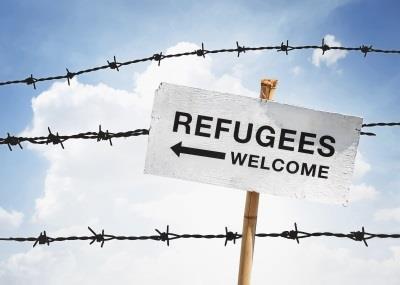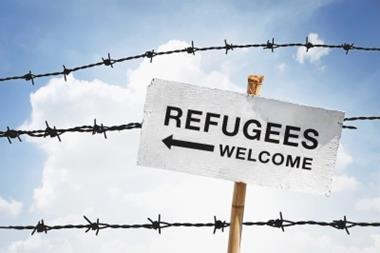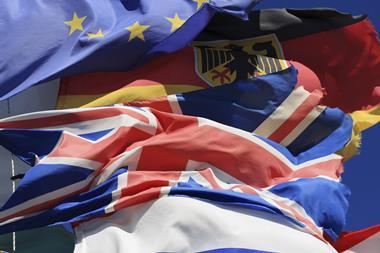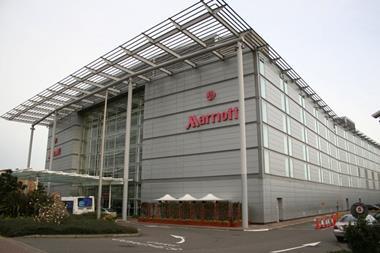As hundreds of thousands cross into Europe, hostility to the migrant surge is growing. While some observers see a cultural threat, others say immigrants are a boon

The European Commission’s inability to solve the migrant crisis was tragically illustrated in early May when at least 100 would-be migrants drowned between Libya and Italy, their land of hope.
Until a sustainable solution is found to a problem that some fear threatens the very fabric of the EU, the humanitarian and economic emergency will continue.
As the death toll mounts inexorably – 1,357 migrants and refugees perished at sea, mostly along the central Mediterranean route, in the first four months of 2016 alone – so do the logistical, humanitarian, cultural and commercial challenges in a Europe ill-prepared to accommodate the tide of people fleeing war-torn and mismanaged countries, the latter notably in sub-Saharan Africa. According to official statistics, more than 28,590 people landed in Italy in those four months and more than 154,860 reached Greece.
Here’s the problem: all of them want to live in a EU that can’t accommodate them.
Because Europe has become a magnet for its perceived wealth and stability, the crisis is of such proportions that it threatens to overwhelm the founding principles of the EU, notably the Schengen open-border policy. According to United Nations agencies, the totality of refugees, asylum-seekers and others fleeing their home countries for whatever reason now approaches 60 million.
That last figure alone has so alarmed European citizens that it has triggered a political backlash in the form of a sharp rise in support for anti-migration parties. As Dr Laurence Allan, senior manager for Latin America and Caribbean at risk consultancy IHS, points out, Germany and France have borne much of the brunt of this reaction.
“At the German regional elections in March, the government suffered badly in three of its states [where] right-wing parties, who are generally anti-migration, attracted a good share of votes,” he says.
In December, France’s regional elections produced similar results. Allan notes: “In the two largest Schengen economies, anti-immigration parties had a profound impact politically, even if these parties are not represented by the number of seats they have in parliament.”
Anti-immigration sentiment is stoked by headline events such as that which occurred in Paris in early May, when French police cleared out 1,600 illegals, mainly young men, from the Stalingrad station on the metro and transported them to hastily established camps elsewhere in the capital.
According to the general secretary of the local prefecture, Sophie Brocas, this was the 19th time in a year that refugees have had to be moved on from what fearful local residents described as unsanitary “dumps”.
Another cause of anti-immigrant sentiment in the wake of terrorist attacks in Brussels and Paris is the fear that terrorists will slip through the cordon, as indeed has already happened.
Historic forces
Until enduring solutions are found, the crisis won’t go away. Most experts point out that the migrant flows are the result of historically new forces – the ‘Arab Spring’, a chaotic post-Gaddafi Libya, and the continuing deterioration of the political and social situation in Afghanistan, Iraq and sub-Saharan countries such as Eritrea.
Although comparisons are made with refugees fleeing Europe during the Second World War, historians point out that this crisis is more serious because there are now more failed states.
Brussels’ deal with Turkey is the latest attempt to find a lasting solution. After months of negotiations Turkey’s President Recep Erdogan has signed up to the ‘one-in, one-out’ scheme whereby migrants arriving illegally in Greece will be sent back to Turkey if they do not apply for asylum or if their claim is rejected. For every Syrian returned to Turkey, the EU will accept a Syrian who has made a legitimate request for asylum.
But as David Lea, senior Europe analyst at Control Risks, says: “There are concerns that the Turkey agreement could fall through. As far as I can see, even if the agreement works, there will be a strong resurgence in migrant crossings and overland attempts as spring softens and turns into summer.”
Economic assets
But what does this unprecedented crisis mean for the commercial world?
First, migrants can undoubtedly become economic assets in the countries where they settle. As Jonathan Woetzel, Shanghai-based director of the McKinsey Global Institute, pointed out in a report in late April, cities such as London that have developed robust arrangements for migrants benefit as a result. “Migration is an incredibly important part of how a city develops,” he notes. “Cities that are not able to attract and retain talent or migrants [will] shrink.”
But, he adds, “There has to be a regulatory regime [and] openness to absorb immigration.” And the fundamental principle of such a regime is that immigrants are seen as assets rather than costs.
Another advocate of immigration, albeit the controlled kind, is Philippe Legrain, former economic advisor to the president of the European Commission and visiting senior fellow at the London School of Economics, who believes Britain, for example, should open up safe, legal routes for people to work there. “Immigrants are generally a boon for Britain,” he argued recently. “They do jobs that not enough locals can or want to do. As care providers and taxpayers, they are a shot in the arm for an ageing society with big debts.”
Barbed wire
In the meantime, all the experts agree that the people flows must first be controlled. In defiance of an open-borders policy designed for different times, Hungary’s prime minister Viktor Orbán refuses to dismantle a barbed wire fence on the Serbian border after more than 140,000 illegal crossings. Thus Hungary has become a kind of dam, holding up people headed for the most desirable EU nations – notably Germany with its generous welfare state or, failing that, Sweden, Austria and the UK.
Britain continues to operate a conservative regime. In 2015, for example, the UK rejected most of the 31,400 applications for asylum that it received. As a result, its refugee population remains small.
The end of Schengen?
Under severe political pressure, German chancellor Angela Merkel is reconsidering her virtually open-door policy for refugees. In neighbouring Austria, another country with anti-immigration political parties, chancellor Werner Faymann has temporarily suspended adherence to the Schengen agreement, with Slovenia and Croatia following suit.
As IHS’s Allan points out, the crisis will continue to put strains on the entire Schengen area. “But we see temporary exceptions to the free movement of goods and people in the area as being exactly that – temporary.”
He does not foresee Schengen falling apart, because it’s so fundamental to free trade. “Key economies such as Germany and France are working hard to ensure that the Schengen area itself is not under threat.”
However a possibility once seen as remote is, says Control Risks’ Lea, “no longer ridiculous”. Although he does not think it likely, a dismantling of Schengen would make it very difficult to do business across European borders. This would be particularly true in manufacturing or any industry that is time-sensitive.




















No comments yet